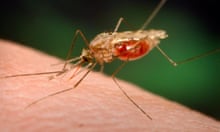New and potentially controversial techniques including releasing genetically modified or irradiated mosquitos could be deployed to hamper the spread of the Zika virus, according to a statement from the World Health Organisation (WHO) today.
Zika is a disease transmitted by the Aedes aegypti mosquito. The disease originated in Africa, but in the last decade has spread to French Polynesia in the Pacific, and to Brazil and Colombia. More than 13 countries in the Americas have reported sporadic infections.
“Given the magnitude of the Zika crisis, WHO encourages affected countries and their partners to boost the use of both old and new approaches to mosquito control as the most immediate line of defence,” the WHO statement said.
It said more research was needed to evaluate the new techniques. “For genetically modified mosquitoes, the WHO Advisory Group has recommended further field trials and risk assessment to evaluate the impact of this new tool on disease transmission,” the statements said, adding that trials in the Cayman Islands have shown significant reductions in the A. aegypti population there.
The disease is relatively mild, but infection in pregnant women has been linked repeatedly with a condition in babies called microcephaly and an illness in adults called Guillain-Barré syndrome.
“If these presumed associations are confirmed, the human and social consequences for the over 30 countries with recently-detected Zika outbreaks will be staggering,” the statement continued.
Sprays and chemical assault remain standard tactics in the fight against insect borne disease. But Aedes aegypti is a serious problem: the mosquito carries the parasitefor dengue fever as well as Zika. Before Christmas, a House of Lords committee said that the UK had a “moral duty” to prosecute research on genetically modified insects and their use in disease control.
Michael Bonsall is professor of mathematical biology at the University of Oxford, and was an adviser to the Lords committee. “We have a number of tools in our box and one of those that is being field-trialled at the moment for dengue is a GM mosquito, which is essentially to release mosquitoes so that when they mate their offspring die in the larval stage,” he said. “That has been tested in the field. It is exactly the same mosquito that spreads Zika. So it’s just a tool, it’s not the only thing we do, it is one of the things we do.”
Trials have shown that such releases could reduce an insect population by up to 90%, he said.
“But we know from disease theory that we don’t necessarily have to eradicate mosquitoes from an ecosystem to have an affect on disease dynamics. As long as we suppress the population and make it smaller, below a threshold, it will have a big impact on the disease burden.”
Jo Lines of the London School of Hygiene and Tropical Medicine said, “This is an invasive species, so getting rid of these mosquitoes would, if anything, restore the natural ecology, not destroy it.”
The WHO calls mosquito control “the most immediate line of defence”. Brazil is investigating more than 4300 suspected cases of microcephaly and more than 460 have been confirmed. The Zika infection so far has been identified in 41 of them.









Comments (…)
Sign in or create your Guardian account to join the discussion